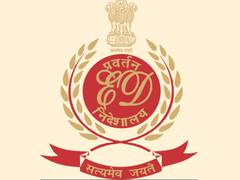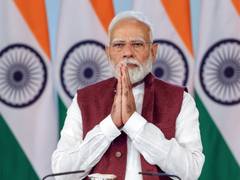AIIMS Delhi issues Monkeypox treatment guidelines, sets aside 5 beds for isolation
New Delhi, Aug 20 (PTI) AIIMS Delhi on Tuesday issued guidelines for handling suspected Monkeypox patients and allocated five beds for treatment in isolation.
The standard operating procedures (SOP) stated that the suspected patients should be immediately placed in a designated isolation area to minimise contact with other patients and staff.
The World Health Organization (WHO) has declared Monkeypox outbreak as a public health emergency of international concern, raising the need for heightened awareness of the disease, rapid identification, and stringent infection control measures to prevent further spread, the Centre-run institute said in a statement.
According to the AIIMS SOP document, Monkeypox is a viral zoonosis with symptoms similar to those seen in the past in smallpox patients, although clinically less severe.
The document outlined necessary steps to handle such cases in the AIIMS emergency department.
According to the protocol upon arrival, patients with fever, rash, or a history of contact with confirmed Monkeypox cases should be flagged for immediate assessment.
It also called for identifying key symptoms such as fever, headache, muscle aches, back pain, swollen lymph nodes, chills, exhaustion, and characteristic skin lesions (maculopapular rash that may progress to vesicles and pustules).
Five beds have been earmarked in the AB-7 ward to isolate the Monkeypox cases, the document said.
These beds will be allotted to patients on the recommendation of the chief medical officer of the emergency wing, who will then be treated by the medicine department.
The AB-7 ward shall remain a temporary holding area for the patients until they are shifted to the hospital earmarked for the definitive care — Safdarjung Hospital, the document said.
The SOPs also directed officials to inform the Integrated Disease Surveillance Programme (IDSP) when a suspected Monkeypox case is identified and provide them with the patient’s details, brief history, clinical findings and contact details.
Any person suspected of suffering from the disease should be referred to the Safdarjung Hospital for further evaluation and treatment as it has been designated for managing and treating such patients, the guidelines said.
A dedicated ambulance has also been allotted to shift the patients to the Safdarjung Hospital.
According to the SOPs, all Monkeypox patients should be handled with strict infection control measures and the staff should use personal protective equipment (PPE) when dealing with them.
Besides, proper documentation of the patient’s details, symptoms, and referral process should be maintained, the document added.
Amid the Monkeypox outbreak in neighbouring countries, the Union Health Ministry has asked all airports as well as authorities at land ports on borders with Bangladesh and Pakistan to remain alert about incoming international passengers reporting Monkeypox symptoms, official sources said on Sunday.
The ministry has identified three Centre-run hospitals — Ram Manohar Lohia Hospital, Safdarjung and Lady Hardinge — as nodal centres in the national capital for isolation, management and treatment of any patient with Monkeypox.






